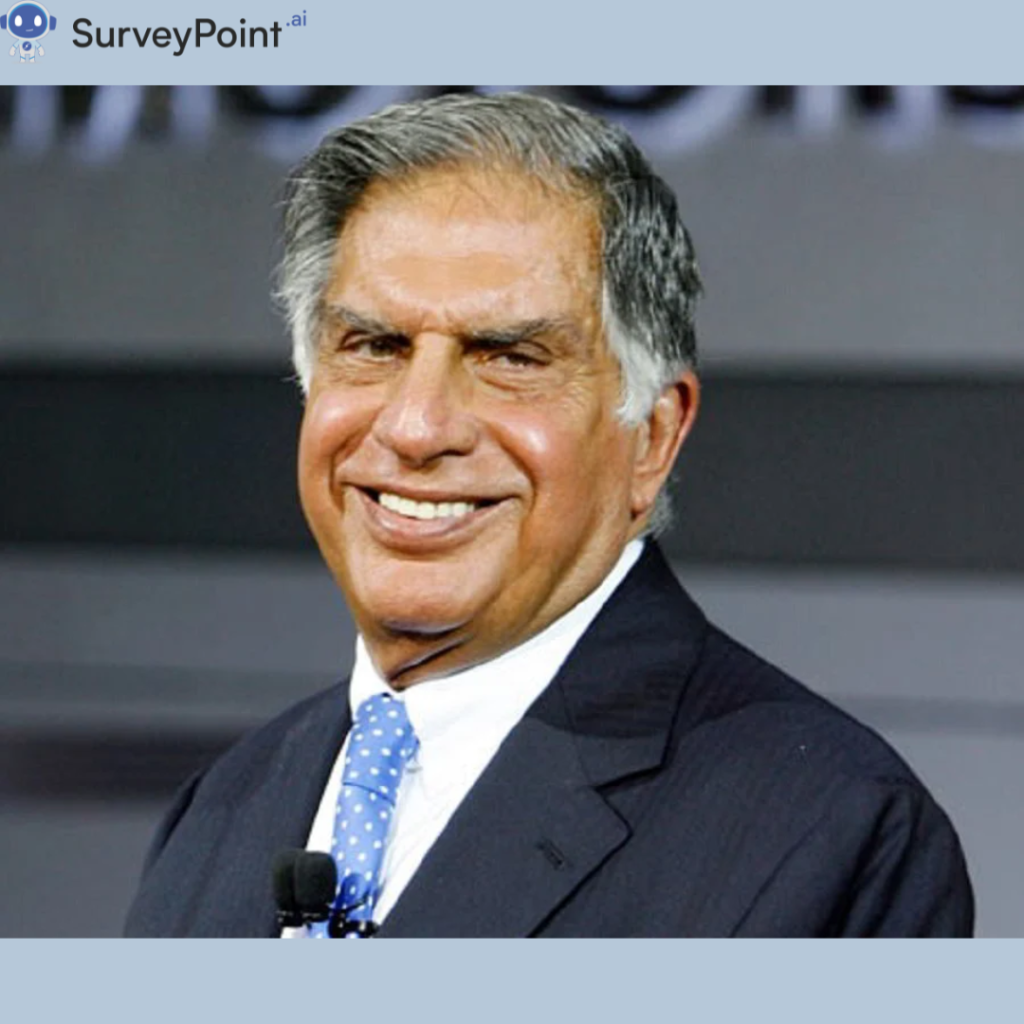
Ratan Tata, one of India’s most iconic business leaders, is synonymous with integrity, vision, and philanthropy. As the Chairman Emeritus of Tata Sons and a key figure in shaping the modern Tata Group, Ratan Tata has not only transformed one of India’s largest conglomerates but also left a significant impact on global business. His leadership, particularly at Tata Trusts, the charitable arm of the Tata Group, reflects his lifelong commitment to giving back to society.
With Ratan Tata approaching his later years, speculation has been rife about who will take the reins of Tata Trusts and continue its philanthropic mission. In this blog, we’ll explore Ratan Tata’s legacy, the role of Tata Trusts, and the potential successors who might carry forward this prestigious institution.
Ratan Tata’s Legacy: A Titan of Industry and Philanthropy
Ratan Tata’s journey with the Tata Group began in 1962 when he joined the company as an apprentice. Over the years, he worked his way up to become the Chairman of Tata Sons in 1991. Under his leadership, Tata Group expanded globally, acquiring companies like Tetley Tea, Corus Steel, and Jaguar Land Rover, while also establishing itself as a leader in India’s technology, automotive, and consumer sectors.
Key Contributions to Tata Group:
- Global Expansion: Ratan Tata is credited with turning Tata into a global brand, with significant acquisitions that enhanced the company’s international footprint.
- Social Responsibility: One of the defining features of his leadership has been a strong focus on ethical business practices and social responsibility. He emphasized that Tata Group’s success was tied to its commitment to improving the lives of people.
- Innovation: Ratan Tata’s vision of creating affordable, high-quality products like the Tata Nano and launching Tata Motors into the electric vehicle space highlights his forward-thinking approach.
Beyond business, his role as the Chairman of Tata Trusts has been equally impactful. Tata Trusts, which controls a majority stake in Tata Sons, has long been focused on philanthropic activities, contributing to healthcare, education, rural development, and other charitable causes across India.
What is Tata Trusts?
Tata Trusts is one of the oldest and largest philanthropic organizations in India. It was established by the founding members of the Tata family to give back to society and improve the quality of life for millions. Over the decades, Tata Trusts has played a pivotal role in shaping India’s social and economic landscape by funding projects in areas like:
- Healthcare: Tata Trusts supports numerous healthcare initiatives, including cancer treatment facilities, rural health programs, and maternal care.
- Education: From scholarships for underprivileged students to research grants, Tata Trusts has a significant impact on promoting quality education across India.
- Rural Development: Tata Trusts is involved in various rural empowerment projects, focusing on improving livelihoods, water management, and agricultural productivity.
- Disaster Relief: The Trusts have also been active in providing relief during natural disasters, pandemics, and other crises.
With its vast influence and substantial financial resources, Tata Trusts has become a major driver of social change in India. The leadership of Tata Trusts is critical not only to the organization’s philanthropic efforts but also to maintaining the ethos of the Tata Group as a whole.
Who Will Take Over Tata Trusts?
As Ratan Tata steps back from active leadership roles, the question of who will succeed him as the head of Tata Trusts is a significant one. The decision will shape the future of the Tata Group’s philanthropy and its broader mission of contributing to society. A few names have emerged as potential successors:
1. Noel Tata
Noel Tata, half-brother of Ratan Tata, is one of the key contenders to succeed Ratan Tata at Tata Trusts. Currently serving as the Chairman of Tata International, Noel has significant experience within the Tata Group and has been seen as a steady, reliable leader. His expertise in retail and international business, coupled with his close ties to the Tata family, makes him a natural candidate to carry forward the legacy.
2. N. Chandrasekaran
N. Chandrasekaran, the current Chairman of Tata Sons, has also been mentioned as a possible successor. Chandrasekaran took over as the Chairman of Tata Sons in 2017 after a successful stint as the CEO of Tata Consultancy Services (TCS). Under his leadership, TCS became one of the world’s largest IT services companies. His deep understanding of the Tata Group’s operations and his close working relationship with Ratan Tata make him a strong candidate. However, whether he will also take over Tata Trusts remains to be seen.
3. R. Venkataramanan
R. Venkataramanan, a long-time aide of Ratan Tata, previously served as the Managing Trustee of Tata Trusts. He played a crucial role in managing the day-to-day operations of the Trusts. Although he stepped down from the position in 2019 amid controversies, his years of experience and proximity to Ratan Tata cannot be overlooked.
4. Outside Candidates
There has also been speculation that an external leader with experience in philanthropy and social work might be chosen to lead Tata Trusts. Given the increasing focus on professionalizing nonprofit work, the trustees may decide to bring in someone with a global perspective on philanthropy to take the organization forward.
Challenges Ahead for Tata Trusts
Whoever takes over the leadership of Tata Trusts will face several challenges, including:
- Expanding the Trusts’ Reach: As India’s population grows and the needs of the country become more complex, Tata Trusts will need to scale its efforts in healthcare, education, and rural development.
- Managing Stakeholder Expectations: With a majority stake in Tata Sons, Tata Trusts plays a critical role in guiding the overall strategy of the Tata Group. The new leader will need to balance the philanthropic mission with the expectations of shareholders and other stakeholders in the Tata Group.
- Global Philanthropy: As India becomes more integrated into the global economy, Tata Trusts may also look to expand its charitable activities to other countries. Managing this global expansion will be another key challenge for the new leadership.
Conclusion: The Future of Tata Trusts
Ratan Tata’s leadership has not only transformed Tata Group into a global conglomerate but also cemented Tata Trusts as a beacon of philanthropy. As he steps down from his active role, the question of who will succeed him is crucial for the future of both the Trusts and the broader Tata legacy.
Whether it’s Noel Tata, N. Chandrasekaran, or a new face, the next leader of Tata Trusts will need to uphold the principles of philanthropy, ethical leadership, and social responsibility that Ratan Tata has championed throughout his life. The new leadership will be tasked with taking the Trusts into the future while staying true to its mission of improving the quality of life for millions of people across India.
The successor will carry forward not just the business acumen but the deep sense of social obligation that has defined Tata Trusts, ensuring that its impact continues to grow for generations to come. For more information checkout- surveypoint.ai




